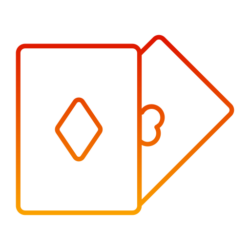A poker solver is a piece of software that uses game theory to calculate an optimal strategy for user-inputted scenarios. There are many different poker solvers on the market, but they all operate in a similar manner and offer the same basic functionality. In this article, we will explore the basics of solvers and how they can be used to improve your game.
Poker Solvers are a Great Tool for Study
Seeing an optimal strategy is always a great learning tool, especially when you’re working to correct some leaks or bad habits. However, it’s important to keep in mind that the optimal solution provided by a poker solver is not necessarily the best strategy for the specific opponents you play against. Typically, this is because lower stakes players (especially beginners) have exploitable tendencies that are difficult to overcome with just GTO solver play alone.
When using a poker solver, it is often a good idea to use a nodelock function that allows you to change the strategy that the program produces based on your opponent’s tendencies. For example, if you have an opponent who is highly passive in check-raising versus calling, you can nodelock her to make the solver’s solutions more aggressive by switching some of her call hands to raise hands. This will make the solver produce more aggressive strategies that you can then study to improve your own game against her.
The biggest drawback of using a poker solver is that it requires a significant amount of computing power to run. As the complexity of the game tree grows and more bet and raise sizes are added, solving a scenario can take hours to complete on a standard home computer. This is one of the reasons why some players choose to queue up lists of situations that they want to solve, and leave their computers running overnight so they can get the results they need quickly.
Nevertheless, most players who work with poker solvers regularly express overall improvements in their game from the use of these tools. While it’s not easy to emulate a solver’s suggestions in the real world, they can be very helpful in identifying bad habits and improving your intuition.
Having the ability to eyeball an ideal strategy is an invaluable learning tool, even though it might not be 100% practical for the types of opponents you play against at your local games. Seeing a perfect strategy forces you to question why you are playing your hands the way you are, and if there are any better options that you could be trying. Ultimately, poker solvers are a great tool to use when studying the game at any level of skill. They are especially useful for beginner and intermediate players who have some level of knowledge of game theory. Advanced players will also find them helpful, but should be aware that solvers can be dangerous if they’re used without the proper understanding of the game.
